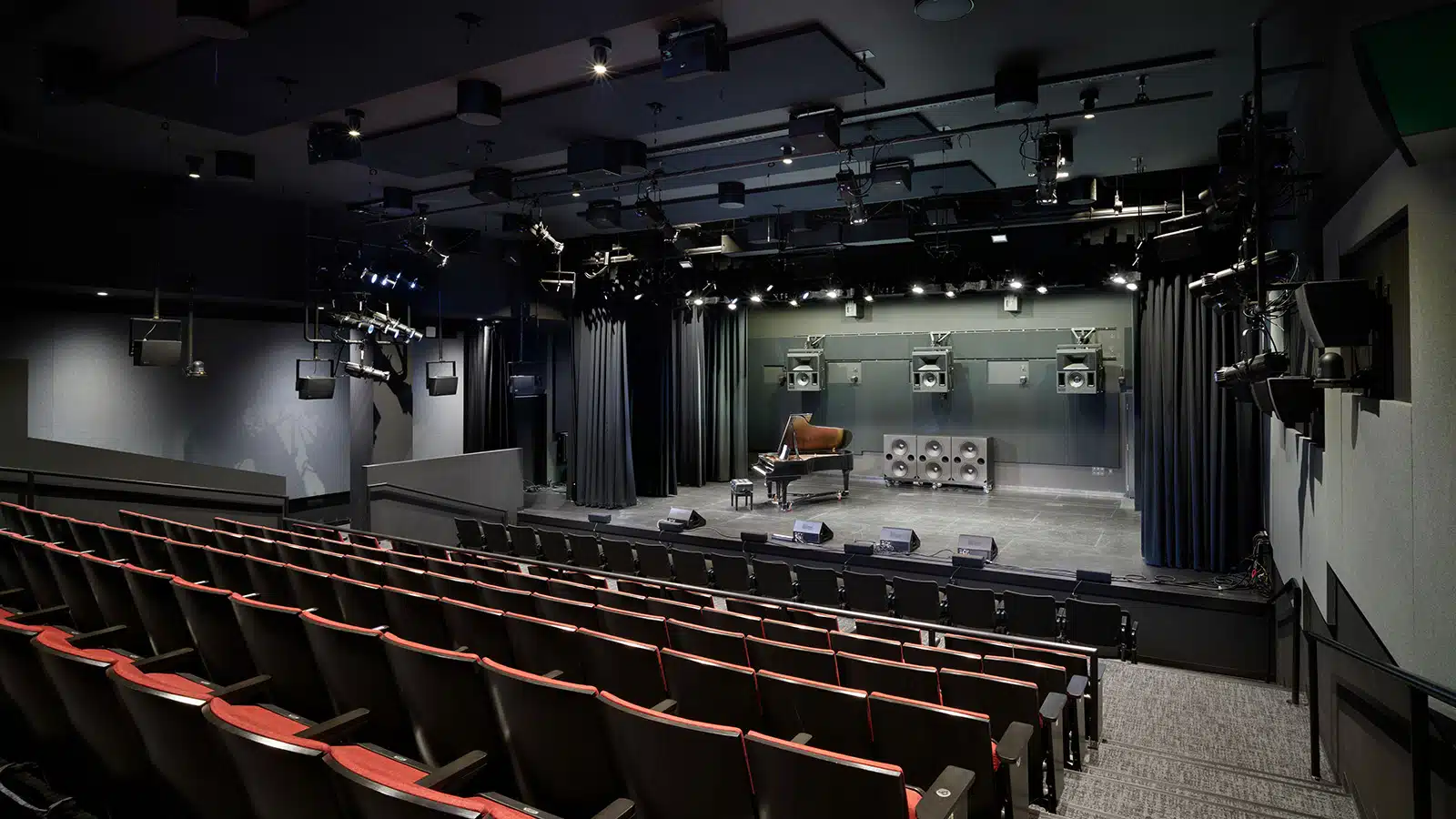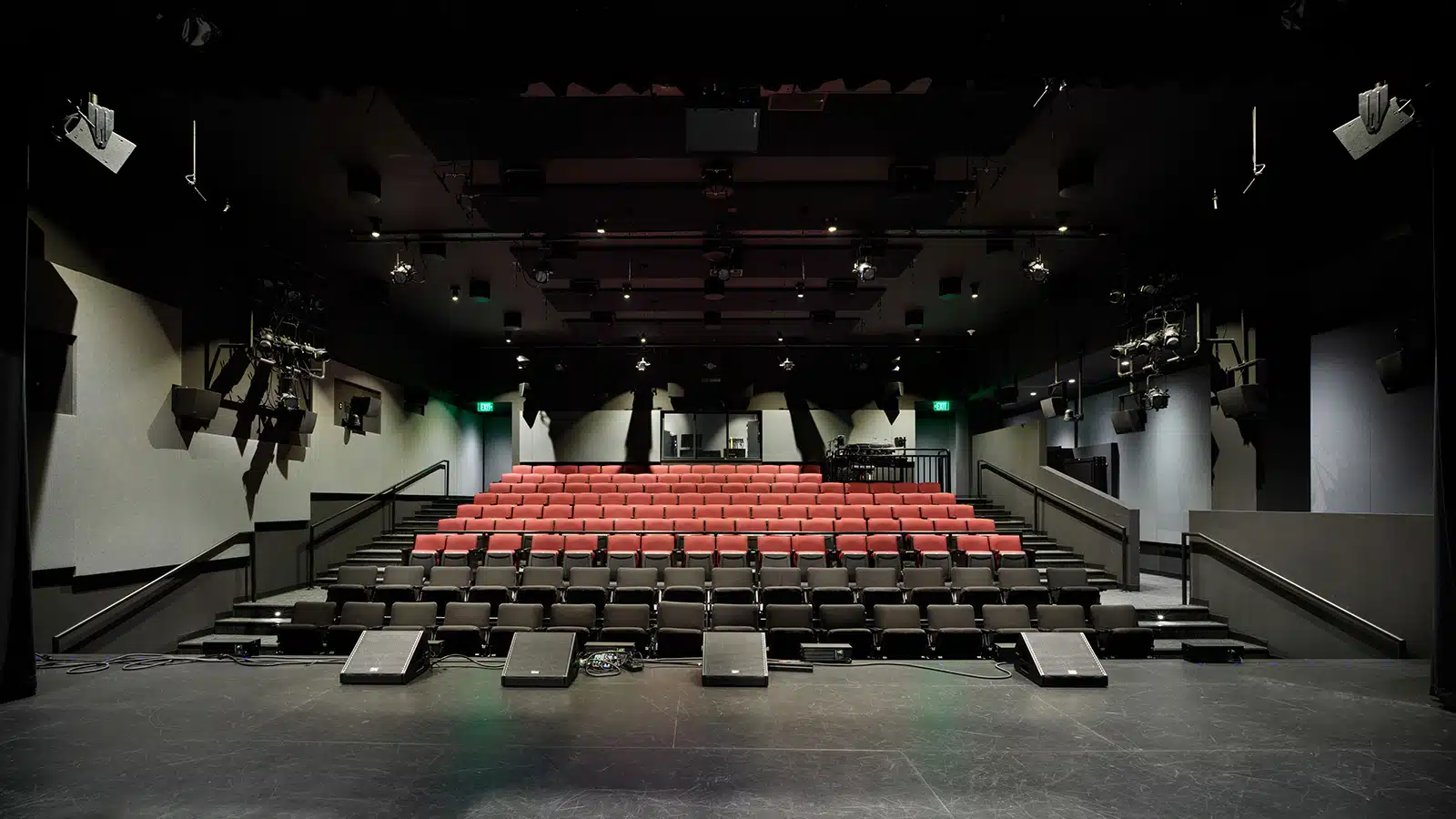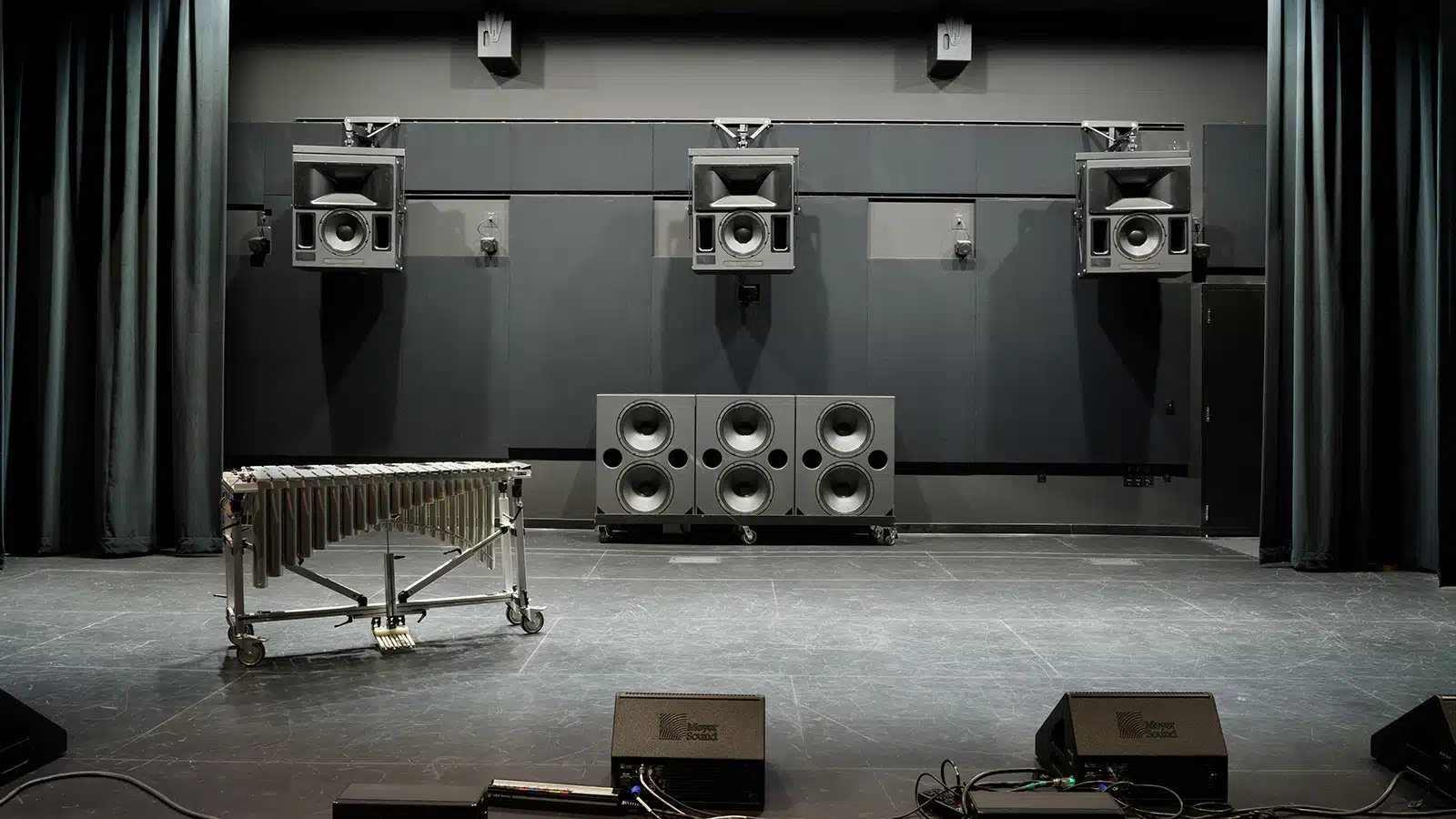We needed a movie theater, a black box theater, a lecture hall, and a concert hall. And with music, the acoustics ideal for jazz are very different than, for example, taiko drums. What I heard with Constellation was remarkably cleaner than what I was expecting. It did not sound at all digitized, which was almost a shock in itself!”
Pinky EstellDirector of Creative Services and Event Spaces, Cornish College of the Arts
Featured Products
Acheron 80, Ashby‑8C, Constellation, HMS‑5, MJF‑208, MM‑10XP, MM‑4XP, ULTRA‑X40, UP‑4slim, USW‑210P, X-800CCornish College of the Arts, situated only a few blocks from Amazon’s global headquarters near downtown Seattle, is surrounded by some of the nation’s highest-priced real estate. As one consequence, when the school first proposed expanding into a new performance and learning facility, maximizing the utilization of the space was a top priority. Fortunately, by implementing a Constellation acoustic system by Meyer Sound, the recently opened Raisbeck Auditorium can provide the optimum aural ambiance for lectures, drama, film screenings, and dance recitals as well as concerts spanning all musical genres.
The new venue, seating about 160 for most uses, is housed in a new high-rise, mixed-use development known as The Ivy on Boren, sharing the ground floor with an art gallery.
“When we examined our curriculum about five years ago, one principle that emerged was shifting to a multi-disciplinary arts education,” says Pinky Estell, director of creative services and event spaces for the college. “It followed that this new space had to be multi-functional, and we knew from the outset that a primary challenge was the difference in acoustical requirements. We needed a movie theater, a black box theater, a lecture hall, and a concert hall. And with music, the acoustics ideal for jazz are very different than, for example, taiko drums.”
The brief for both audio-video system design and acoustical design for the auditorium was handed over to the consulting firm of Jaffe Holden, with Associate Principal Steven Schlaseman assigned to acoustical design and project management.
“Cornish has a very forward-looking music department, so they didn’t flinch when we proposed a system of active acoustics,” says Schlaseman. “And that was really our only option for changing the acoustics as the room dimensions were absolutely fixed. Although we could dampen sound reflections by adding physical absorption, there was no way we could expand the room volume to extend reverberation as would be optimum for many uses.”
In the early planning stages, a new Constellation system recently had been completed for Octave 9 at the Seattle Symphony. However, the room configuration and uses there were significantly different. Consequently, Estell and other key decision-makers flew down to Meyer Sound in Berkeley to hear demonstrations in the similar Pearson Theater.
“We were more than impressed,” recalls Estell. “What I heard with Constellation was remarkably cleaner than what I was expecting. It did not sound at all digitized, which was almost a shock in itself!”
The as-installed systems at the Raisbeck Auditorium comprise a total of 110 Meyer Sound loudspeakers, deployed in four sub-systems. The Constellation and Atmos-capable cinema surround system includes 70 small full-range loudspeakers (Ashby‑8C, HMS‑5, MM‑4XP) and 16 MM‑10XP subwoofers. 64 miniature condenser microphones are arrayed around the space for ambient acoustical sensing. The primary reinforcement system utilizes six UP‑4slim and three ULTRA‑X40 loudspeakers augmented by a center-flown cardioid array of three USW‑210P subwoofers. Three Acheron 80 cinema loudspeakers carry the screen channels with LFE assigned to a trio of X-800C cinema subwoofers. Six MJF‑208 stage monitors are available for artist foldback.
All Meyer Sound systems, along with video projection and extensive audio recording facilities, were supplied and installed by Morgan Sound of Lynnwood, Washington. In addition to a DiGiCo SD-10 console, QLab show control, and Aviom personal monitoring, Morgan Sound also provided an ample selection of premium microphones from Neumann, Royer, Shure, and Sennheiser.
“This is easily the smallest theater with this much technology that I’ve ever been involved with,” remarks Morgan Sound Project Manager Steven Weeks. “And when we did the initial demo session for faculty and donors, everybody was impressed with what they heard. And not just Constellation. The stellar sound reinforcement system is flat and musical. And when we ran the cinema system with Atmos content, everybody was blown away by how good it sounds.”
Cornish College has been known as a cutting-edge arts institution for decades, notably during the years when iconoclastic composer John Cage was in residence. “We have a tradition of innovation, and we always urge our students to push forward,” says Pinky Estell. “It may take some time for students and faculty to become familiar with the technology in this room, but we expect they will use it to stretch the boundaries of creativity in acoustical environments.”
Classes hosted in the Raisbeck Auditorium include jazz performances and new trends in composition, with concerts to date ranging from punk rock to taiko drumming. In addition to student film showings, talks are underway to form partnerships with local film festivals.
“It’s been a delightful experience working with Meyer Sound and Morgan Sound,” summarizes Estell. “We look forward to pushing the limits of what Constellation can do over the coming years.”
Other key contributors to the Raisbeck Auditorium project include theater consultant Robert Smulling of PLA Designs and overall construction consultant Jen Creighton of Brightpath Consulting. The venue is named in recognition of philanthropists James and Sherry Raisbeck.
Founded in 1914 as a music school, Cornish College of the Arts now also offers programs in fine arts, dance, and drama. Notable alumni include choreographers Merce Cunningham and Robert Joffrey as well as Ann Wilson of the rock band Heart.




